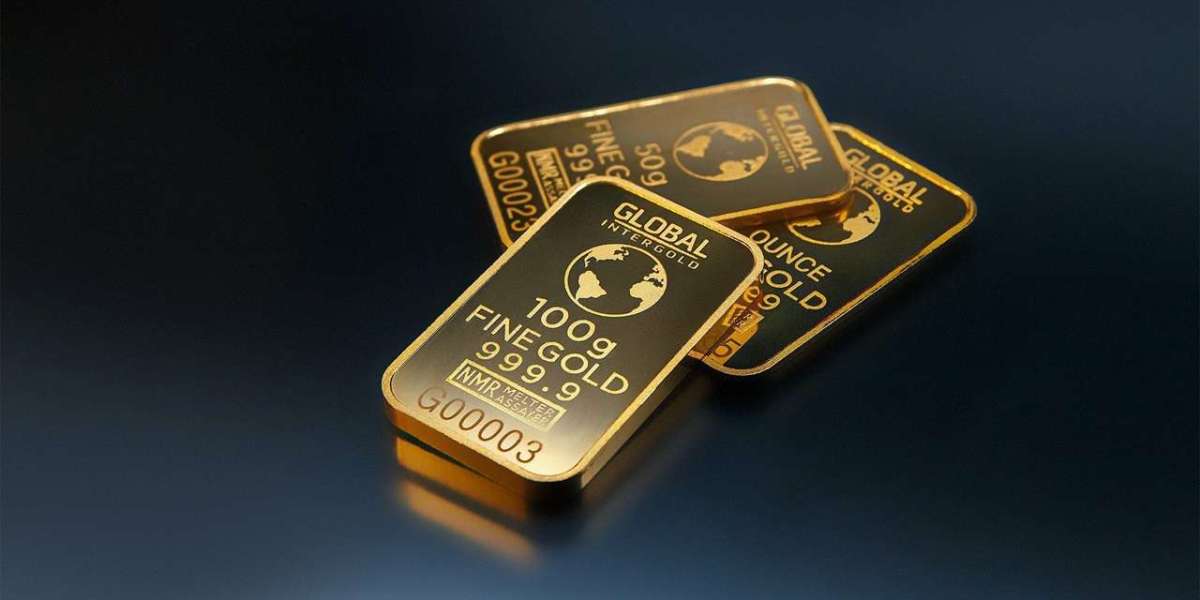Gold has long been seen as a safe haven for investors, especially during times of economic uncertainty. Buying gold bullion is a practical way to own physical gold, but not all gold is created equal. If you're considering this type of investment, it's important to know what to look for before making a purchase.
The market offers a variety of gold products, from coins to bars, but gold bullion stands out because of its high purity and value. Whether you’re a seasoned investor or buying for the first time, understanding key aspects like purity, weight, premiums, and storage can help you make a smart choice.
If you're ready to browse options, you can explore gold bullion available from reputable UK dealers.
Understand the Purity and Fineness
Purity is one of the most critical factors when purchasing gold bullion. The value of your bullion depends largely on its gold content. Most gold bullion bars and coins are either 99.9% or 99.99% pure, often referred to as 24-karat gold.
Look for products stamped with their fineness, such as “999” or “999.9,” which tells you the percentage of pure gold in the item. Avoid anything without proper markings, as it may not meet investment-grade standards.
Choose the Right Weight for Your Budget and Goals
Gold bullion is available in a wide range of weights, from 1-gram bars to 1-kilogram bars and beyond. While larger bars typically offer a lower premium over the spot price, smaller bars are easier to sell and trade.
If you’re just starting out, smaller denominations can offer flexibility and easier entry into the market. For larger investments, 100g, 250g, or even 1kg bars may make more sense. Consider your budget, investment goals, and how liquid you want your assets to be.
Check the Premium Over Spot Price
When buying gold bullion, you’ll pay more than the live market price of gold. This additional cost is called the premium, and it includes manufacturing, distribution, and dealer markup.
Premiums can vary significantly between dealers and also depend on the product size and brand. Smaller bars usually carry higher premiums, while larger ones offer better value per gram. Compare prices across trusted sources to make sure you're not overpaying.
Buy from Reputable Dealers
Trust is everything when it comes to buying precious metals. Always buy from established dealers with a good track record, clear pricing, and verifiable customer reviews.
Look for dealers who are members of professional associations such as the London Bullion Market Association (LBMA) or other recognised bodies. These memberships usually indicate a commitment to industry standards and quality assurance.
Avoid private sellers or online marketplaces where authenticity and quality are hard to verify. It’s better to pay a little more for peace of mind than to risk getting counterfeit or underweight bullion.
Consider Brand and Manufacturer
Certain mints and refineries have earned a global reputation for producing high-quality bullion. Names like PAMP Suisse, Valcambi, and the Royal Mint are well-known and widely trusted.
Buying branded gold bullion from these manufacturers not only ensures quality but can also make it easier to resell in the future. Recognisable branding adds credibility and liquidity to your investment.
Think About Storage and Insurance
Owning physical gold means you’ll need to think about how and where to store it. Keeping gold bullion at home may seem convenient, but it comes with risks like theft or damage.
Many investors choose secure vault storage provided by the dealer or a third-party provider. These facilities often come with full insurance and high-level security. Always ask about storage fees and insurance coverage before choosing a solution.
If you decide to store it yourself, invest in a high-quality safe and consider adding special coverage to your home insurance policy.
Verify the Authenticity and Documentation
Before buying, make sure the gold bullion comes with proper documentation. Most reputable dealers provide a certificate of authenticity that includes details such as weight, purity, and serial number.
This paperwork is crucial for reselling and verifying your investment. Without it, you may have trouble proving your gold’s legitimacy or securing a fair resale price.
Stay Informed on Market Trends
The price of gold moves with global economic factors, geopolitical events, and currency values. While gold is often more stable than other assets, it's not immune to price changes.
Track gold prices regularly and understand what drives them. This knowledge will help you time your purchases and maximise potential returns. Use tools like price alerts and market news updates from reliable sources.
Plan for Selling and Exit Strategies
Even if you’re buying gold bullion as a long-term store of value, it’s wise to think ahead about how you’ll sell it. Will you sell back to the dealer? Use a bullion exchange? Pass it on to heirs?
Knowing your options helps ensure liquidity when you need it. Stick to well-known brands and bar sizes that are easier to sell, and keep all documentation in order to make the process smooth when the time comes.
FAQs
What purity should I look for in gold bullion?
You should look for a purity of 99.9% or higher, typically marked as “999” or “999.9” on the bar. This ensures you’re buying investment-grade gold.
Is it better to buy gold coins or gold bullion bars?
Gold bars generally offer better value due to lower premiums, while coins may be easier to sell or collect. It depends on your investment goals.
How do I verify that gold bullion is real?
Always buy from trusted dealers and check for certificates of authenticity, proper stamps, and serial numbers. You can also have bullion professionally tested if needed.
What is the safest way to store gold bullion?
Secure vault storage through a trusted dealer or third-party facility is the safest option. If storing at home, use a high-security safe and consider insurance.








